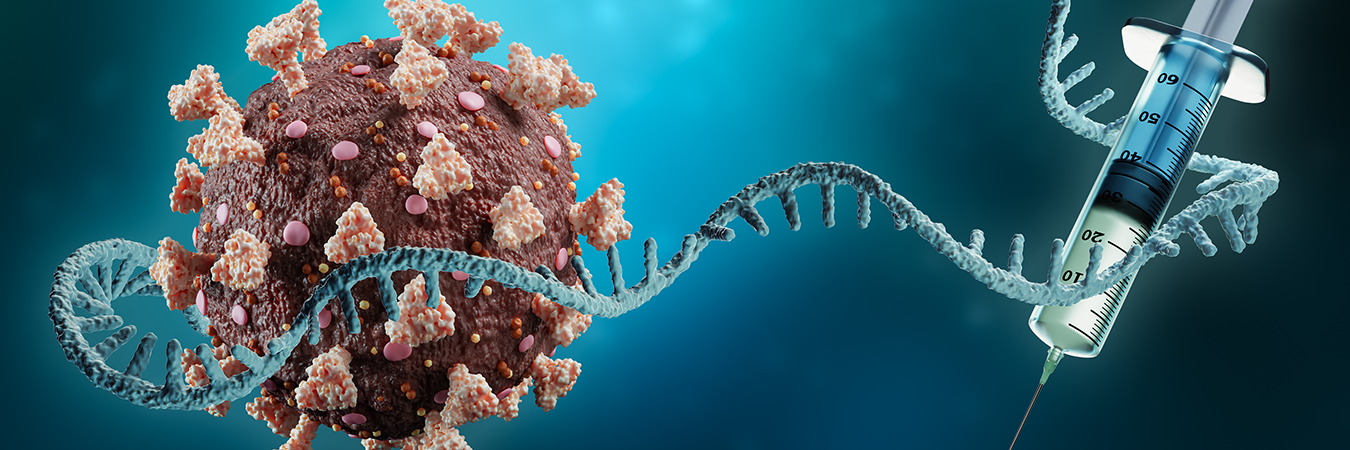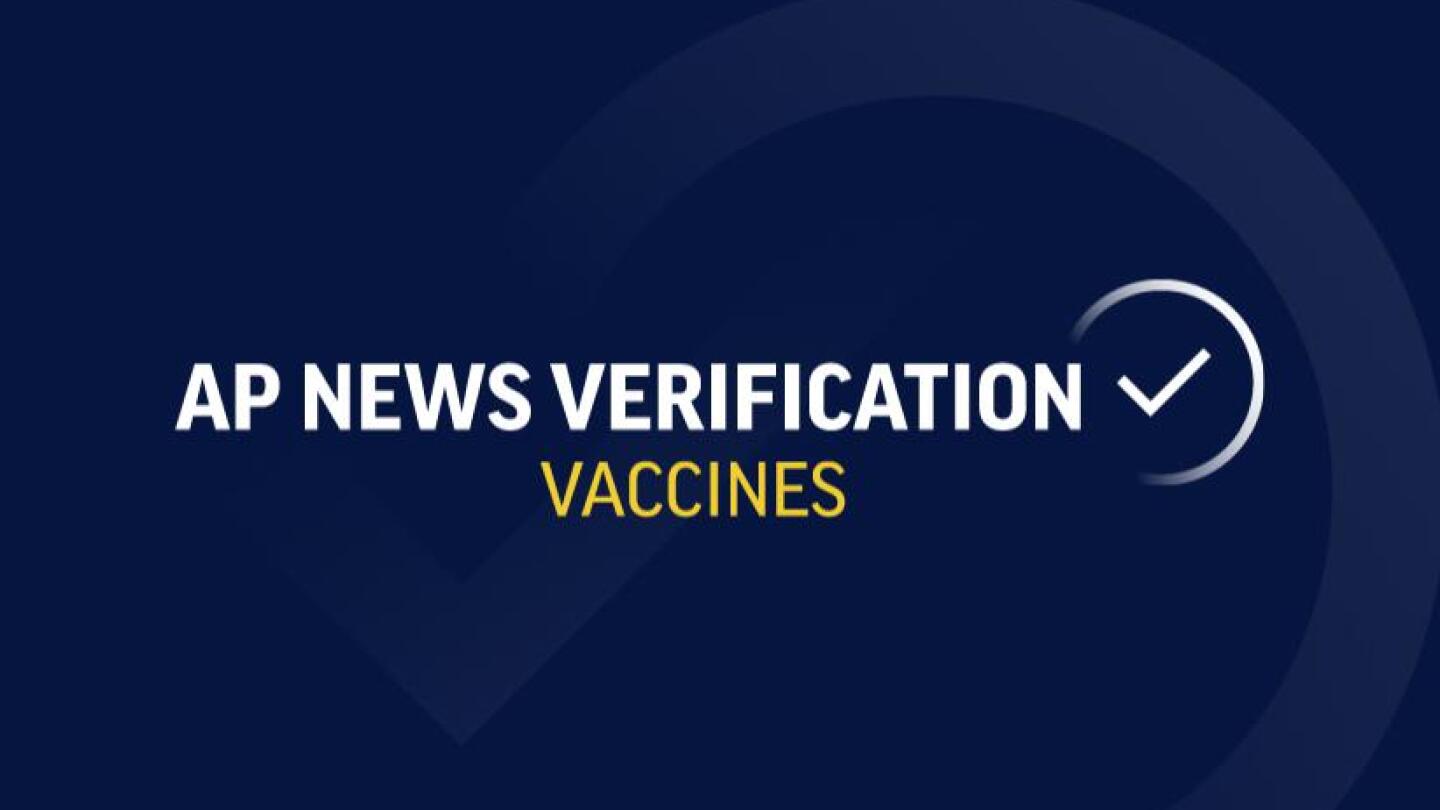You are misunderstanding what he said.
He said that this type of technology is based on or can be used in gene therapy.
"Gene therapy" means that you go into an organism's DNA and edit it. This would be helpful in, say, editing a gene that causes a particular type of inherited cancer or disease. This technology exists in the form of CRISPR. However, it is not authorized for use on humans.
mRNA vaccine technology is similar in that it copies the genetic code
from the exterior "spike protein" of the COVID virus and then uses that synthesized
"messenger" RNA (rather than a sample of the virus itself) to teach our immune system how to deal with that particular pathogen. They do not, and are not able to, edit our DNA. It is simply NOT possible.
That is not to say that there are not adverse effects possible and that have ocurred. No question that people have had mild to fatal reactions to this, and other vaccines. But not because of altering their DNA or genes. People have to make their own decisions on the basis of their risk/consequence tolerances. But to create disinformation is not helpful to anyone.
Here is a pretty good, brief explanation on the difference between mRNA and gene therapy. If you
really are interested in learning as much as possible about this matter that is so important to you, you owe it to yourself to take 5 minutes to read the short linked article(s) with an open mind.
Why mRNA vaccines aren’t gene therapies
We bust another Covid-19 myth – this time about how mRNA vaccines work – in our latest blog post

www.genomicseducation.hee.nhs.uk
Gene therapies vs mRNA therapies
Gene therapies involve making deliberate changes to a patient’s DNA in order to cure or alleviate a
Genetic condition
This can be by adding a functional copy of a gene, disabling a gene that makes a faulty product or changing gene activation.
The mRNA from the vaccines does not enter the cell nucleus or interact with the DNA at all, so it does not constitute gene therapy.
Gene therapies can have long-lasting effects because they permanently change the cell’s DNA, with these changes being inherited by any
Daughter cells that result if the cell divides. In contrast, mRNAs are always transitory and are not inherited by daughter cells, making them ideal for use in vaccines.
Although mRNA therapies have been the subject of clinical trials for many years, their role in the fight against Covid-19 has only accelerated interest in
their usefulness to combat other conditions, including rare diseases and cancer.
No, COVID-19 vaccines aren’t gene therapy
False claims that the vaccines alter humans’ DNA have circulated since before their debut in late 2020.

apnews.com
CLAIM: The COVID-19 vaccines “are a gene therapy, NOT a vaccine.”
AP’S ASSESSMENT: False. The COVID-19 vaccines do not change a person’s genes, as gene therapy does, experts say. The shots from Pfizer and Moderna use messenger RNA, or mRNA, to instruct the body to create a protein from the coronavirus. The Johnson & Johnson vaccine, meanwhile, uses a modified adenovirus to trigger an immune response.
THE FACTS: False claims that the vaccines alter humans’ DNA have
circulated since before their debut in late 2020.
The posts point to a clip of Dr. Robert Malone — a
vocal critic of the COVID-19 vaccineswho did early research on mRNA technology — speaking about the shots during a roundtable event hosted by Republican Sen. Ron Johnson in early December. In the clip, Malone is asked whether the vaccines are actually a form of gene therapy.
“As I’ve said repeatedly, it came out of a gene therapy research program,” Malone responds. “These and the adenoviral vectors are absolutely gene therapy technology applied for the purpose of eliciting an immune response.”
A tweet sharing the clip, which was also posted on Instagram, claimed: “The shots are a gene therapy, NOT a vaccine.”
Experts say that’s false.
“It’s just a very different process,” said Dr. Louis Picker, a professor and associate director of the Vaccine and Gene Therapy Institute at Oregon Health & Science University. “The point of gene therapy is to go in and change the actual coding in the DNA of a person’s cells.”
For example, federal officials in November
approved the first gene therapy for the blood-clotting disorder hemophilia.
Picker said gene therapy is “a multi-step process that’s very deliberate, it’s very different than just injecting RNA in a carrier that is designed to be picked up, expressed and elicit an immune response,” as the vaccines do.
The COVID-19 vaccines from Pfizer and Moderna
use mRNA to instruct cells to make a protein from the coronavirus and trigger an immune response. The Johnson & Johnson vaccine uses a
modified adenovirus, a cold virus, to elicit an immune response.
But none of the vaccines can alter humans’ DNA, as the Centers for Disease Control and Prevention
explains.
Michael Barry, a Mayo Clinic researcher who studies gene therapy and vaccines, said in an email that tools used for those vaccines have a relationship to gene therapy technology — but that does not mean the vaccines are actually gene therapy.
“The vectors for mRNA vaccines (lipid nanoparticles) are descendants of non-viral vectors called liposomes that were originally developed for gene therapy,” Barry said, referring to the nanoparticles that are used to transport the mRNA to cells.
“Gene therapy intends to provide long-lasting protein expression to fix a broken gene and its broken protein,” Barry added. “Vaccines intend a short burst of protein expression to stimulate the immune system.”









